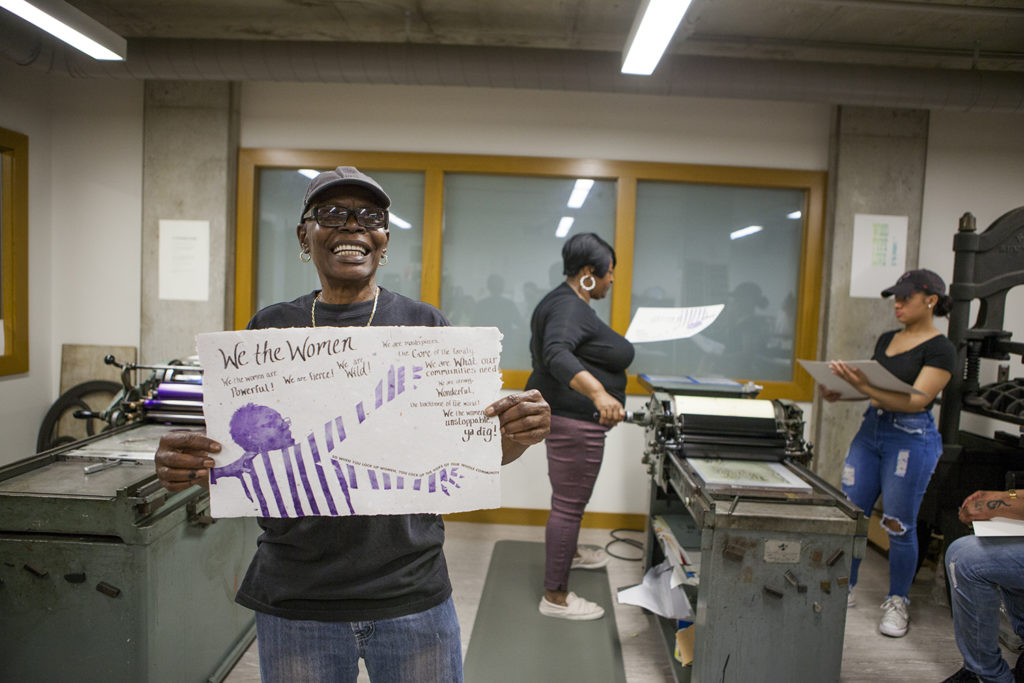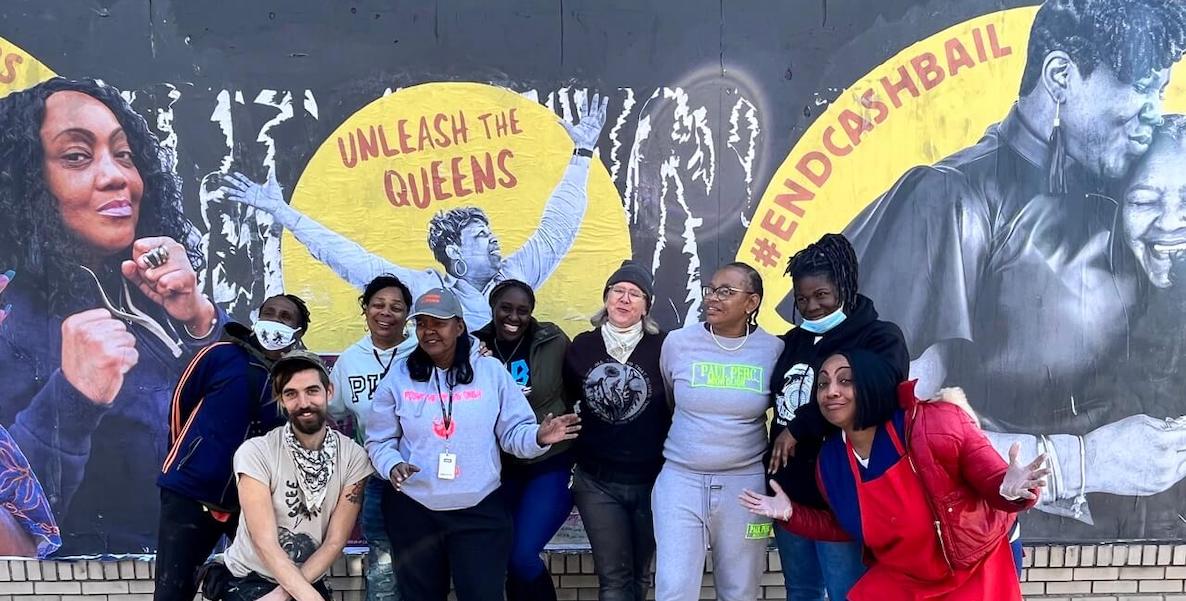Laila Foster* spent one year and two weeks in prison. But she wasn’t serving a sentence — she hadn’t even gone to trial. Instead, Foster was there for an all too common reason: She didn’t have enough money — in her case, $10,000 — to pay the pre-trial cash bail after she’d been arrested following an altercation on her block.
She is far from alone: Nationally, 60 percent of women in jail have not been convicted of a crime and are awaiting trial; in Philly, approximately 85 percent of women in jail are being held pre-trial, says Candace McKinley, lead organizer for the Philadelphia Community Bail Fund.
Over the 54 weeks Foster spent in the city’s Riverside Correctional Facility, she was separated from her four sons, the youngest of whom was only seven months old. She lost her North Philly home. She lost all of her possessions — including the ashes of her brother, who’d died before her eyes in 1997.
Nationally, 60 percent of women in jail have not been convicted of a crime and are awaiting trial; in Philly, approximately 85 percent of women in jail are being held pre-trial.
Ultimately, Foster pled guilty to conspiracy aggravated assault — as so many women in her position do — as the quickest means of getting home. Never mind that, she says, a witness had cleared her name; she just needed to be done with this chapter of her life.
She returned to her family — her mother and sister had taken care of her children in her absence — as a new woman: 100 pounds heavier, depressed, adrift. She knew she had to make a change. But with so few options for reentry programs for women, she wasn’t sure where to turn.
Then, while undergoing addiction treatment at Interim House, she heard about The People’s Paper Co-op (PPC). She thought it would be an opportunity to color, draw, make some art. What she discovered was so much more.
“It’s art for your voice,” she says one evening by phone from the transitional housing. PPC, she says, shows formerly incarcerated women like her that, “You have a voice now. You’re growing. You’re growing so that people can see that change in you. You’re growing so that you can fight for others. You’re growing that backbone and that discipline, and you’re helping others along the way.”
This week, for the fifth year in a row, PPC is collaborating with Philadelphia Community Bail Fund on the Black Mama’s Day Bail Out to raise funds to bail out other women like Foster, in time for Mother’s Day on Sunday. Since 2017, the Fund has bailed out 83 women and hopes to bail out at least 20 more this year, including the 10 mothers they will bail out with the $150,000 they’ve raised (including $100,000 from National Bail Out) since April 5, 2022. (During Covid, they bailed out 516 people.)
The Bail Out takes place along State Road, where formerly incarcerated women stand, rain-or-shine, holding banners and giving out artwork, gift cards, and gift bags containing the women’s favorite candies, toiletries, and shea butter, what McKinley describes as “simple pleasures” that help in the transformation from inmate to free woman.
Courtney Bowles, who co-founded the People’s Paper Co-op with Mark Strandquist in 2015, describes the event as, “One of the most beautiful and humbling things that I can imagine … But it’s still messed up that it’s 2022 and we are still bailing out people because they are poor.”
McKinley said of the 230 women and one child awaiting trial in Philly, 60 percent are held on detainer and therefore not eligible for bail, and the rest just can’t afford bail, which can range from $30 to $100,000.
The Co-op, a program of The Village of Arts and Humanities on North 10th Street and Germantown Avenue, uses art — posters painted atop hand-ripped and pulped old criminal records, others created by national artists, using photos and poetry by formerly incarcerated fellows in the program — not only as a means to help formerly incarcerated women express themselves, but to affect real change.
“Art is such a powerful tool for building community and trust, and for healing,” says Strandquist. “We’re using it as a Trojan Horse to [access] these political and cultural spaces of power — City Hall, museums — that have traditionally silenced these women’s voices or not included them in these spaces. We’re able to really amplify their dreams and demands, whether it’s about destroying stereotypes or impacting policy.” In April, the Co-op created and installed the mural Free Our Mamas, Sisters, Queens at 1124 Spring Garden Street.

Their work has gone beyond art-making, spanning efforts like successfully collaborating with community legal services on campaigns to ban the box — the box asking applicants (for housing, college, and employment) to acknowledge whether they have a criminal record — and working with formerly incarcerated women to write a group article about coping with depression while imprisoned, which this spring was published in Prison Health News.
The Co-op’s online shop is currently selling sets of their posters for $50 and $100, and taking pre-orders for bright yellow t-shirts that read, “Free our mamas! Sisters! Queens!” One hundred percent of sales goes directly to free incarcerated mothers who are sitting in jails because they can’t afford cash bail.
The Co-op will also be selling their work and spreading the word at the Philadelphia Museum of Art this weekend’s Philly Made Market (May 7 and 8, 10 am to 5 pm), where 10 percent of all the artisans’ sales go to the Community Bail Fund.
*This name has been changed to maintain confidentiality.
A version of this story originally ran in 2019.
![]() MORE FROM THE CITIZEN
MORE FROM THE CITIZEN
Header photo courtesy of the Village of Arts and Humanities



